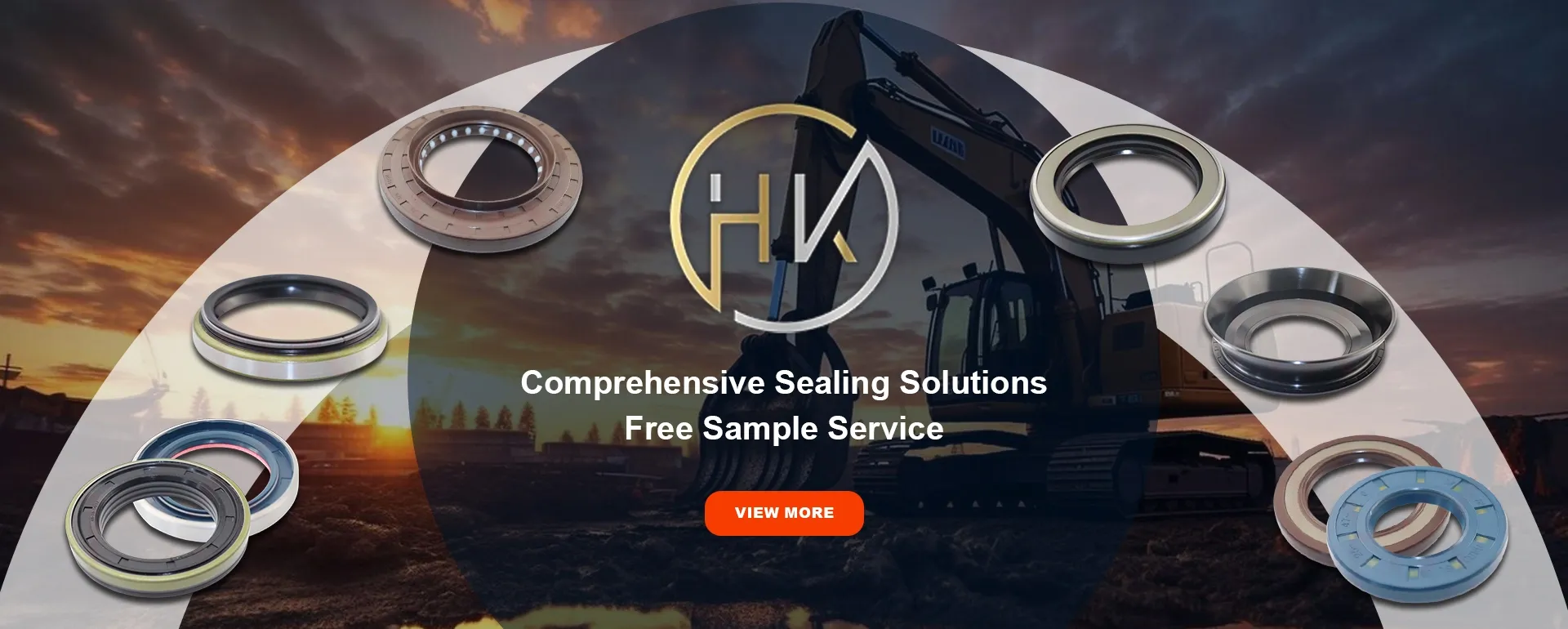nov . 06, 2024 07:37 Back to list
Understanding Oil Seals and Their Importance in Mechanical Applications
Understanding Oil Seals Importance, Types, and Applications
Oil seals are critical components in many mechanical systems, specifically designed to prevent the leakage of fluids, such as oils and lubricants, while also keeping contaminants such as dust and dirt from entering sensitive areas. These seals play a vital role in various applications, ranging from automotive to industrial machinery, ensuring optimal performance and longevity.
What is an Oil Seal?
An oil seal, sometimes referred to as a fluid seal, is a device that attaches to a shaft to provide a barrier against the flow of liquid. Comprising a sturdy outer casing and an elastomeric sealing lip, oil seals are engineered to create a tight fit around a rotating shaft. The elastomeric material is designed to adapt to the shaft's movement, while the rigidity of the casing ensures that the seal remains intact under pressure and while in motion.
Importance of Oil Seals
The primary function of oil seals is to maintain the integrity of the lubrication system in machinery. By preventing the escape of oil, they help maintain optimal operating temperatures and reduce friction between moving parts. This directly translates into enhanced efficiency and performance, as well as extended service life for components. Additionally, oil seals mitigate the risk of contamination, safeguarding sensitive parts from dirt and debris that could lead to malfunction or premature wear.
Without effective sealing, machinery would be prone to oil leaks, which not only leads to costly fluid loss but can also result in environmental hazards. Oil spills can have devastating effects on local ecosystems, making oil seals a crucial component in responsible machinery operation.
Types of Oil Seals
There is a diverse range of oil seals available, each designed for specific applications. Below are some common types
oil seal

1. Single-lip Oil Seals The most basic type, featuring a single sealing lip that works on one side. They are commonly used in various applications where sealing against moderate pressures is sufficient.
2. Double-lip Oil Seals These have two sealing lips and provide added protection against leakage and external contaminants. They are ideal for more demanding environments where protection is paramount.
3. Floating Oil Seals Designed to accommodate shaft misalignment, floating oil seals can adapt to slight movements, making them a favorable choice in applications subject to vibration.
4. Rotary Oil Seals Specifically engineered for rotating shafts, these seals are used in applications such as motor and gearbox assemblies where constant rotation occurs.
5. Static Oil Seals Unlike their dynamic counterparts, static oil seals are used in stationary applications where there is no motion between the sealing surfaces.
Applications of Oil Seals
Oil seals are employed in a multitude of industries. In automotive engineering, they are used in engines, gearboxes, differentials, and wheel hubs. In industrial settings, machinery such as pumps, compressors, and conveyor systems rely on oil seals to function efficiently. Even household appliances like washing machines and refrigerators benefit from the use of oil seals to maintain optimal lubrication and prevent leaks.
Conclusion
In summary, oil seals play an indispensable role in the proper functioning of mechanical systems. Their ability to prevent fluid leakage and contamination contributes to the overall efficiency, reliability, and environmental safety of various applications. Understanding the types and functions of oil seals allows manufacturers and engineers to select the right components for their specific needs, ultimately leading to better machine performance and reduced maintenance costs. As technology continues to evolve, the design and materials used in oil seals are also advancing, ensuring that these essential components meet the demands of modern applications while supporting sustainable practices.
-
The Trans-formative Journey of Wheel Hub Oil Seals
NewsJun.06,2025
-
Graphene-Enhanced Oil Seals: Revolutionizing High-Pressure Oil Sealing
NewsJun.06,2025
-
Future of Hydraulic Sealing: Advanced Intelligent TCN Oil Seals
NewsJun.06,2025
-
Don’t Let a Broken TCV Oil Seal Ruin Your Day
NewsJun.06,2025
-
Bio-Inspired Dust Seals for Better Sealing Performance
NewsJun.06,2025
-
Biodegradable and Sustainable Hydraulic Seal Materials
NewsJun.06,2025
-
Top Oil Seal Solutions for Your Industrial Needs
NewsMay.22,2025
Products categories
















